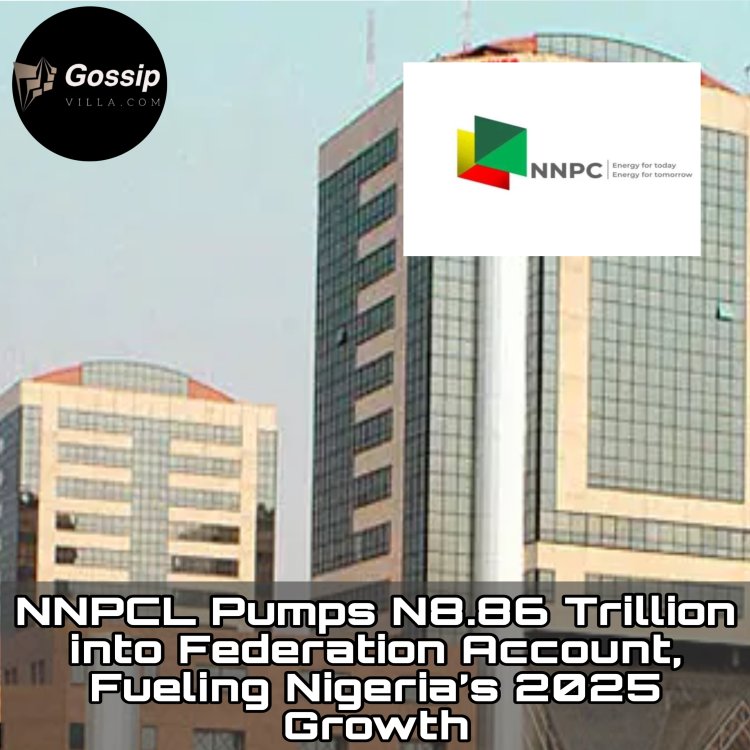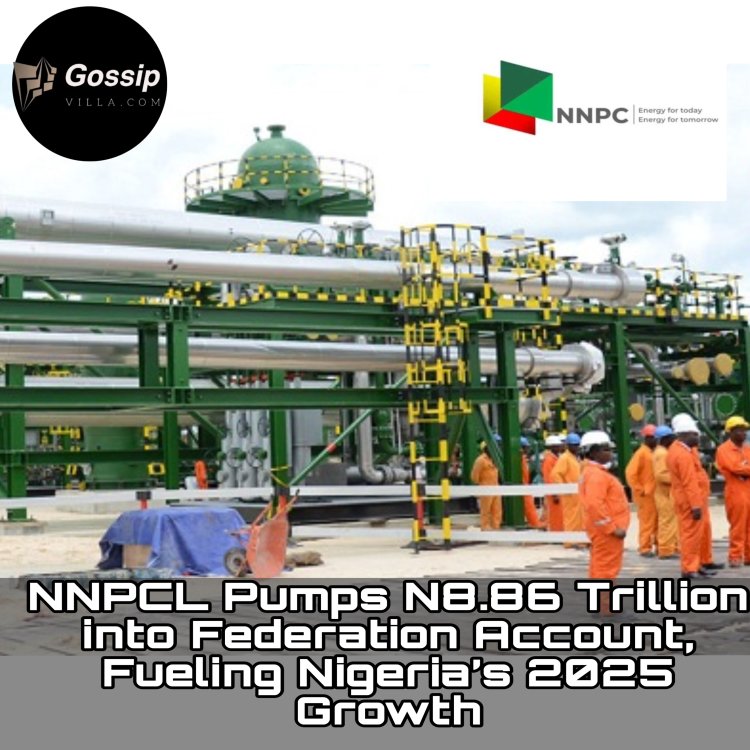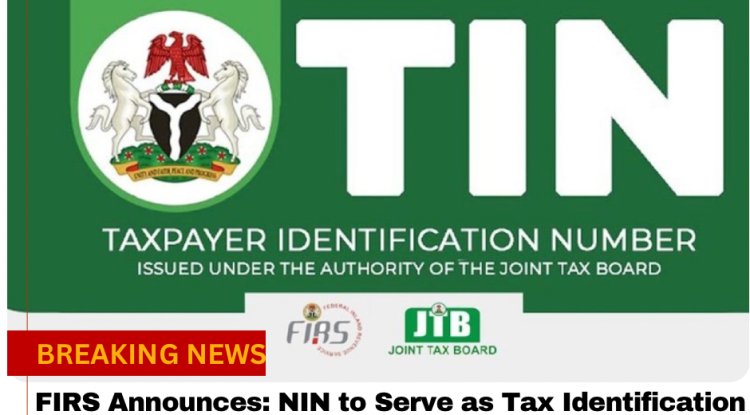NNPCL Pumps N8.86 Trillion into Federation Account, Fueling Nigeria’s 2025 Growth
The Nigerian National Petroleum Company Limited (NNPCL) has remitted a record N8.86 trillion to the Federation Account from January to July 2025

NNPCL Pumps N8.86 Trillion into Federation Account, Fueling Nigeria’s 2025 Growth
The Nigerian National Petroleum Company Limited (NNPCL) announced on September 27, 2025, that it remitted an impressive N8.86 trillion to the Federation Account from January to July 2025, as detailed in its Monthly Financial and Operations Report for August. This milestone underscores NNPCL’s critical role in stabilizing Nigeria’s economy amid global oil price volatility and domestic reforms. As the nation navigates post-subsidy challenges, this injection of funds into the Federation Account—the central pool for revenue distribution among federal, state, and local governments—promises to drive development across key sectors.

NNPCL’s Financial Performance in 2025
NNPCL’s N8.86 trillion contribution reflects a robust performance, up from N6.96 trillion for January to May and N7.965 trillion through June. The company’s August report shows a profit after tax (PAT) of N539 billion, a leap from N185 billion in July, though down from June’s N905 billion high. Total revenue reached N4.655 trillion, fueled by steady crude oil output and a 1.8% rise in natural gas production to 7,722 million standard cubic feet per day (mmscf/d) in July. Strategic moves, like the crude-for-naira scheme and partnerships with international oil firms, have bolstered efficiency despite Brent crude prices averaging $80 per barrel.
Economic Impact of the Remittance
This N8.86 trillion, representing 24.3% of Nigeria’s 2025 budget revenue, is a lifeline for a nation where non-oil sectors underperform. It supports critical areas like infrastructure, healthcare, and security through Federation Account Allocation Committee (FAAC) disbursements. States like Lagos and Rivers, reliant on oil royalties, will see boosted budgets for urban projects and agribusiness. The funds could ease naira depreciation pressures—currently at 1,600 to the dollar—and reduce borrowing, with debt servicing eating up 96% of revenues. NNPCL’s social initiatives, including training 60,821 NYSC members in financial literacy and empowering 141 undergraduates in agribusiness, further amplify its impact.
Challenges and Controversies
Despite this achievement, NNPCL faces hurdles. The 2024 subsidy removal spiked petrol prices by over 200%, fueling inflation and public discontent. Critics, including the World Bank, noted a drop in 2024 remittances to N0.6 trillion from N1.1 trillion in 2023, partly due to NNPCL withholding subsidy savings to offset N7.8 trillion in arrears—a figure disputed at N6.1 trillion net. Delays in full transfers until January 2025 drew scrutiny, but the upstream regulator NUPRC’s N7.1 trillion remittance in eight months complements NNPCL’s efforts, signaling a rebound.
Looking Ahead
Experts urge reforms to maintain this trajectory. Dr. Muda Yusuf of the Centre for the Promotion of Private Enterprise calls for full dividend payouts from NNPCL’s N2.17 trillion 2025 budget and accelerated frontier exploration, where N318 billion was secured for seismic surveys in basins like Dahomey and Bida. With OPEC quotas and geopolitical risks looming, NNPCL’s efficiency is crucial to hitting its N20 trillion revenue target for 2025. This remittance sets a foundation for equitable growth, positioning Nigeria to navigate energy transitions with resilience.
In essence, NNPCL’s N8.86 trillion milestone is more than a fiscal win—it’s a catalyst for national progress, promising opportunity across Nigeria’s diverse landscape.
News Sources:
What's Your Reaction?




















